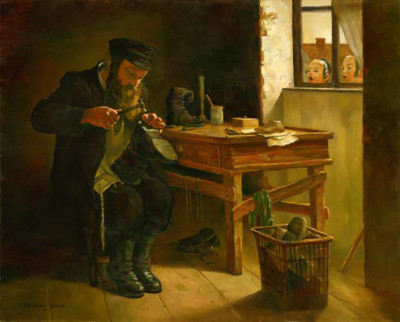

Honesty In The Workplace: Part II
When the g’morah talks about a person being asked nasata vensata be’emunah, the first nasata is spelled nun, sin, alef, taf, and the second is spelled nun, saf, taf, the first one meaning dealing, and the second meaning giving. This is the concept of negotiation in business. Nun, sin, alef can also mean to lift up. A person will be asked, did you use your business dealings to lift yourself up mundane matters, ruchniyus?
At the end of the parshah of Marah, the pasuk says, “Im shamoa tishma lekol Hashem, vehayashar be’einav taaseh, veha’azanta kol chukav – if you listen to Hashem, and you do what is straight in His eyes, and you listen to His mitzvos.” What does vehayashar be’einav taaesh mean? The Mechilta explains that it means to deal with integrity in business. If you have that, then you have the entirety of the Torah, kol haTorah kulah – kol chukav.
R’ Mendel of Riminov was asked how it can be that children are so well-behaved when they are younger and learn so well, but then when they get older, they stray off the derech hayashar? What are the pitfalls in which they stumble?
R’ Mendel answered that if the money that their fathers earn is not kosher, the food bought with that money is also treif, and we know very well the detrimental effect that treif food has on the neshamah.
Chanoch the Shoemaker
The Midrash Talpiyos brings a story about Chanoch the shoemaker: every stitch he made, he would be meyached yichudim and say, “Baruch Shem kevod malchuso l’olam va’ed.” R’ Yisroel Salanter explains that this doesn’t mean that he was inhabiting a different planet while he repaired shoes. It means that he was makpid with every stitch that it should be of the highest quality, so as not to cheat his customers out of their money. He personified lo shalach yado bimeleches re’eihu. That was how he was meyached yichudim and mekadesh Shem Shamayim – by working with the utmost integrity and honesty.
The Imrei Emes says that if someone has not dealt honestly in business, all the Torah that he learned will not help him. That’s why the question of nasata venasata be’emunah comes before the question of kavata itim latorah.
Based on the shiurim of Rav Aharon Walkin ztk”l delivered at the Chazaq Beit Midrash Bais Nosson Meir / Kollel Zichron Moshe V’Leah.
Nasata Vensata Be’emunah
Shiurei Lev Aharon: The Legacy of the Rosh HaYeshiva, HaGaon HaRav Aharon Walkin ztk”l
Typography
- Smaller Small Medium Big Bigger
- Default Helvetica Segoe Georgia Times
- Reading Mode




